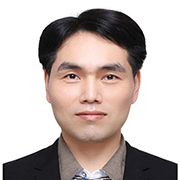
Prof. Hyun-Min Kim
Duke Kunshan University, China
Title: CRlSPR-Cas Tools in C.elegans: Insights from the First Decade
Abstract:
Over the past decade, CRlSPR-Cas technologies have revolutionized genome editing in a wide range of organisms including Caenorhabdits elegans.l was among the early pioneers who contributed to the development of CRlSPR-Cas strategies in C. elegans. in this talk, l will present a brief historical overview of key developments and innoyations that have shaped CRlSPR-Cas genome editing in C. elegans.
Topics wil include the introducton and refnement of co-CRlSpR and co-conversion strategies, streamlined CRISPR-Cas protocols for enhanced ethciency, and the use of various Cas9 variants to expand editng capabilites, l will also discuss the application of dual double-strand breaks (DsBs,, design considerations for guide RNAs, and the use of synthetic oligonucleotides as repair templates.
Additionally, l wil highlight often-overlooked technical aspects such as the importance of high-guality plasmid miniprep in achieving reliable genome editing outcomes. This overview aims to provide both historical context and practical insights for researchers utilizing or developing CRISPR-Cas tools in C. elegans.
Biography:
Dr. Kim's illustrious research career is distinguished by his unwavering commitment to unraveling the intricate mechanisms of DNA damage repair and genome editing. His journey began with a fervent dedication to understanding the fundamental processes underlying DNA repair pathways, which are pivotal for maintaining genome integrity. Throughout his academic endeavors, Dr. Kim has emerged as a pioneering figure in this field, leveraging his expertise to develop innovative methodologies and advance scientific knowledge.
A significant milestone in Dr. Kim's research trajectory was the development of a streamlined method for CRISPR-Cas genome editing in C. elegans, a groundbreaking achievement that revolutionized genetic manipulation techniques in this model organism. His methodological innovation enabled precise genome modifications, including the introduction of mutations, epitopes, and deletions, with unprecedented efficiency and accuracy. Furthermore, Dr. Kim's pioneering work extended beyond method development, as he generated transgenic worms for research purposes, expanding the toolkit available for genetic studies in C. elegans.
Dr. Kim's contributions to genome editing have not only facilitated novel avenues of research but have also shed light on the intricate processes underlying DNA damage repair. By elucidating the molecular mechanisms governing DNA repair pathways, Dr. Kim has provided invaluable insights into the cellular responses to genotoxic stress and the maintenance of genome stability. His research has uncovered the role of epigenetic modifiers in DNA repair processes, highlighting the intricate interplay between chromatin remodeling and DNA damage response.
Beyond his groundbreaking research endeavors, Dr. Kim has also made significant contributions to the academic community through his teaching and mentorship activities. As a former professor at Tianjin University and currently serving at Duke Kunshan University, Dr. Kim has imparted knowledge and fostered the intellectual growth of countless students. His instructional journey has been characterized by innovative teaching strategies and a commitment to excellence in education.
Dr. Kim's influence extends beyond the confines of the classroom, as he actively engages in collaborative research projects with his students, resulting in impactful contributions to the field of biology. His collaborative efforts have led to significant advancements in CRISPR-Cas genome editing and the exploration of anti-cancer drug effects on reproduction and meiosis. Through these collaborative endeavors, Dr. Kim has nurtured the next generation of scientists, instilling in them a passion for scientific inquiry and a commitment to excellence.